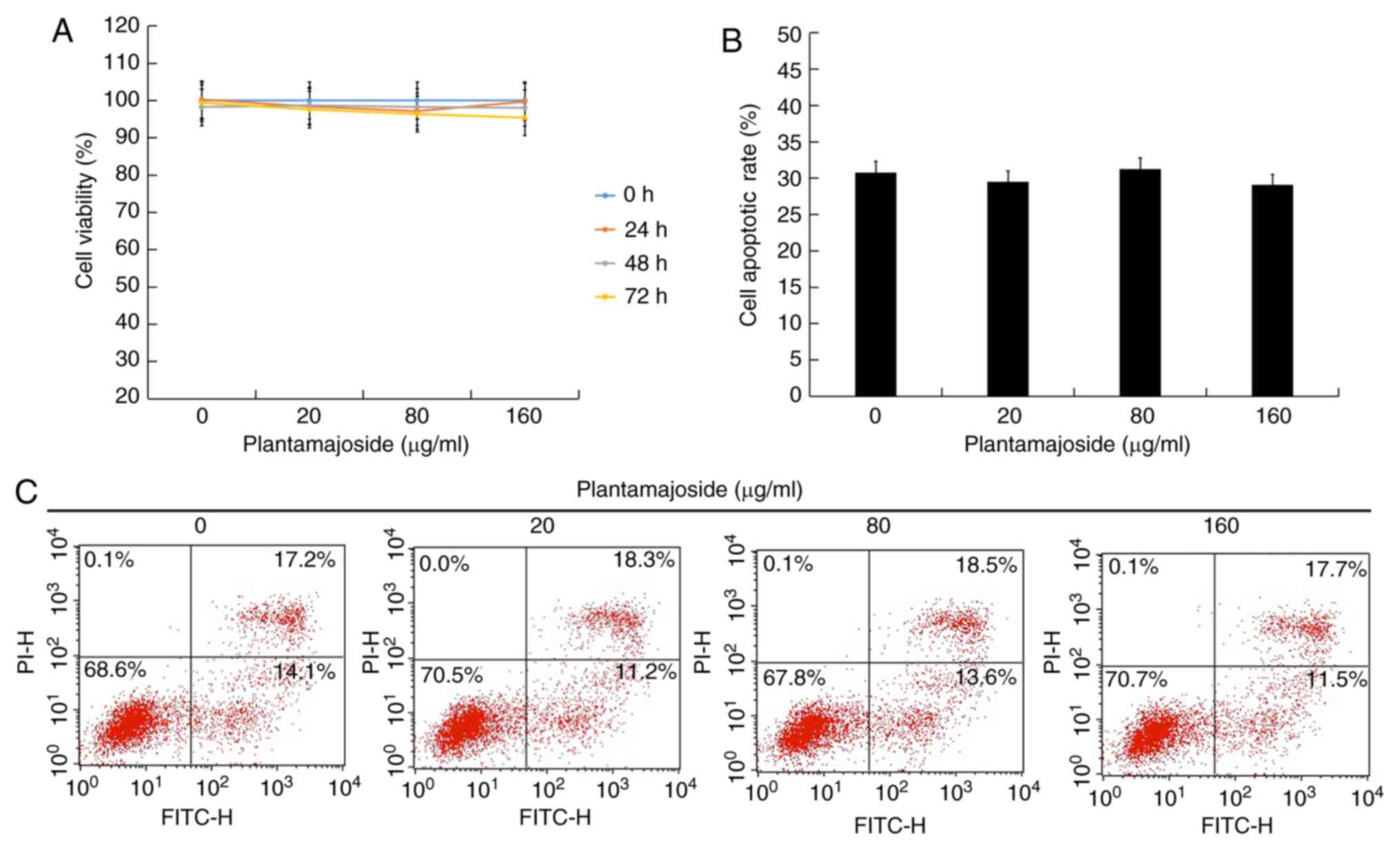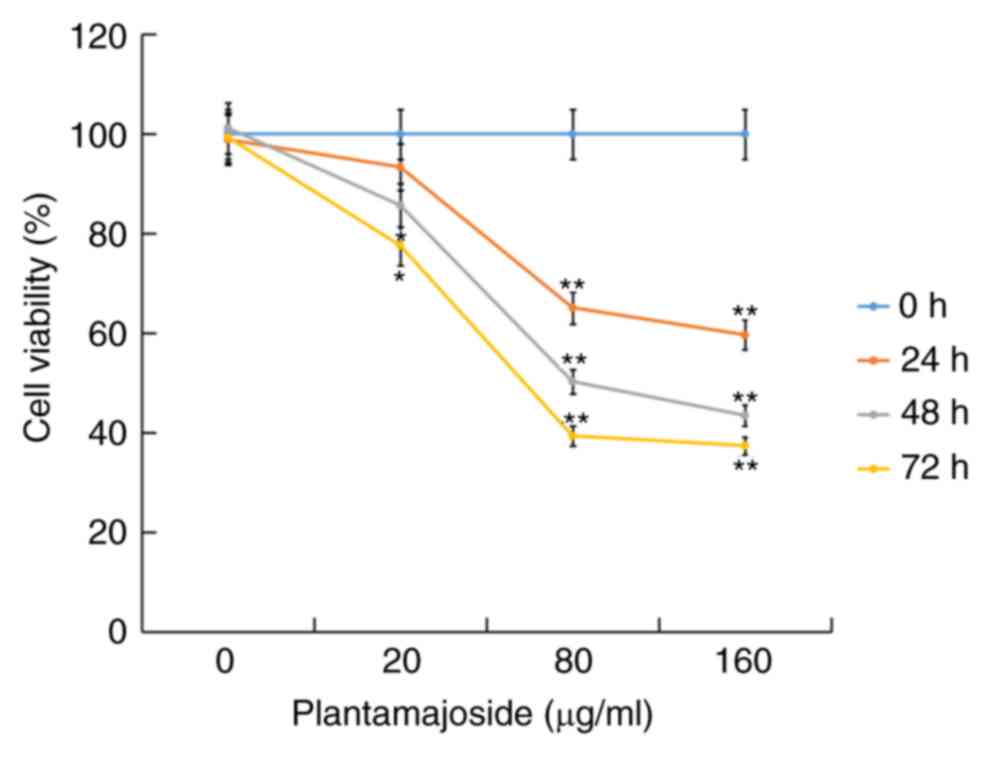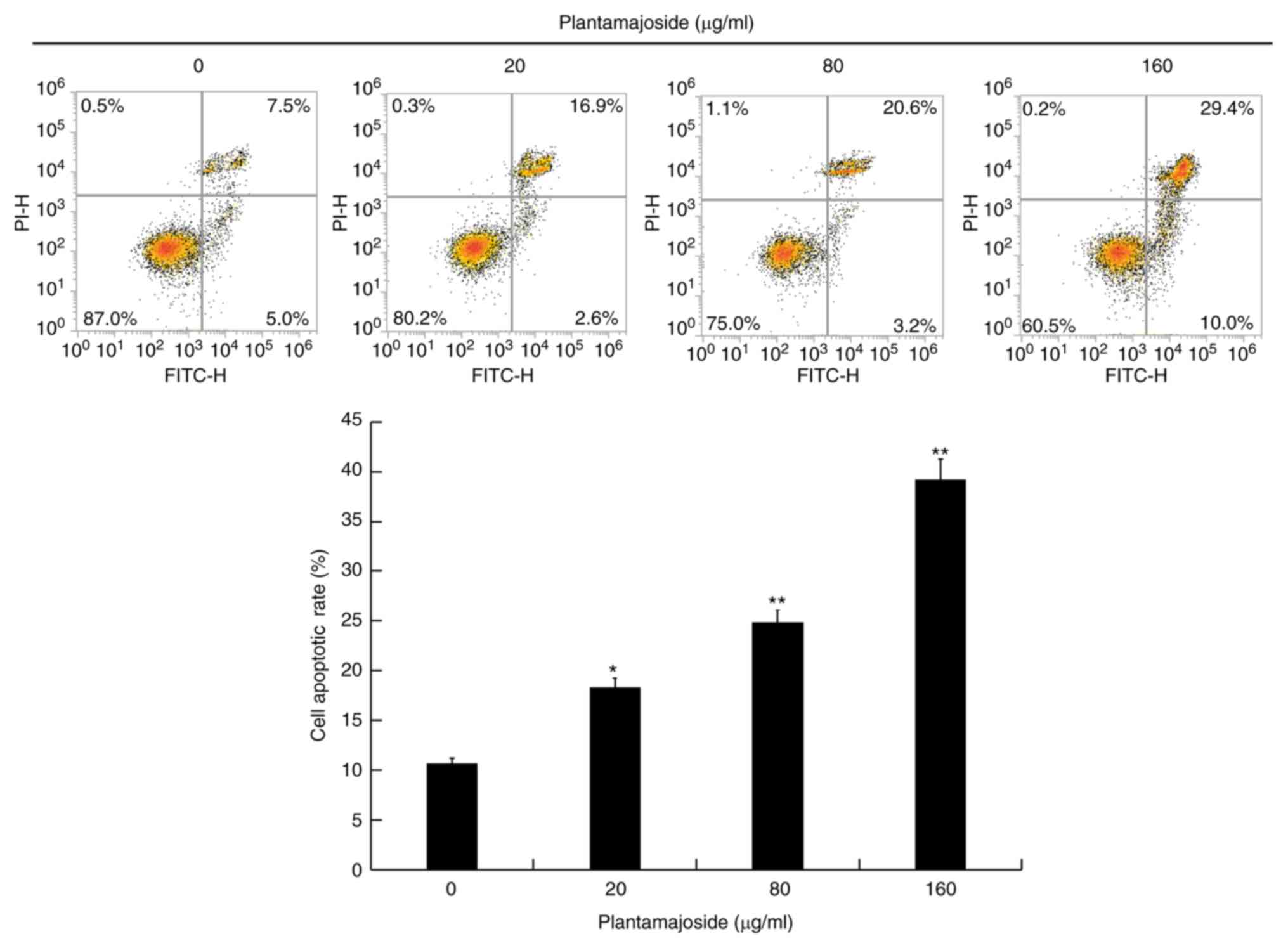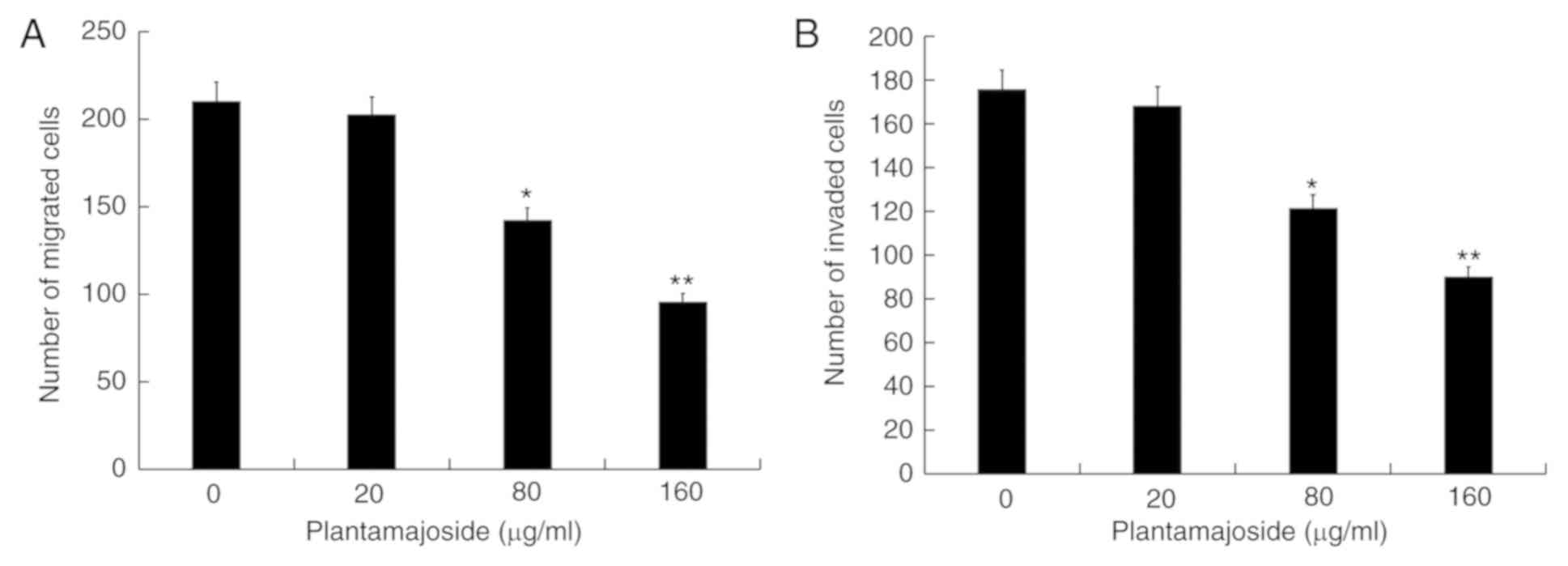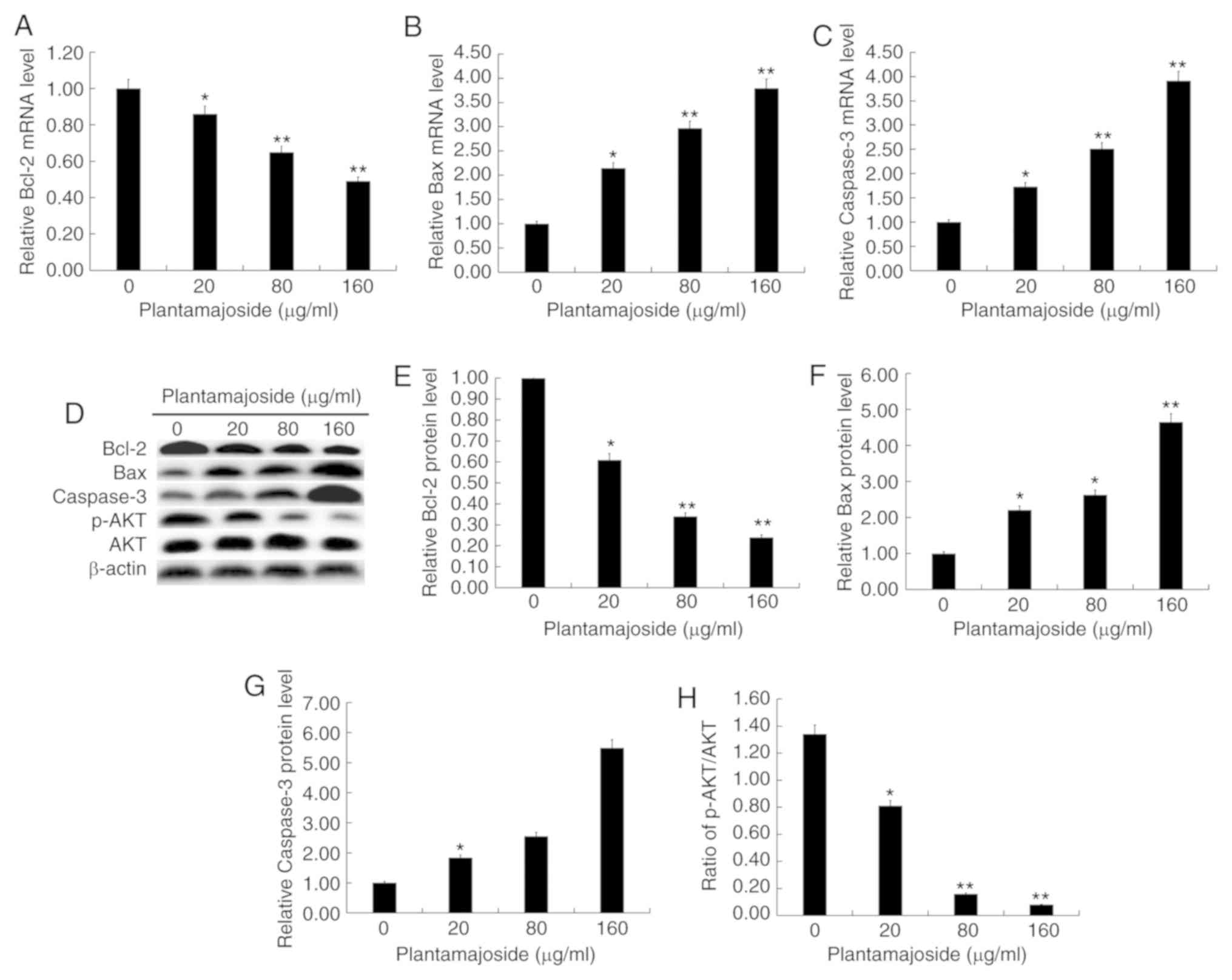|
1
|
Sandhra MC, Alexandra APM, Nádia SVC,
Isadora CC, Poliane C, de Oliveira LCA and Herman S: Synthesis and
in vitro assessment of anticancer hydrogels composed by
carboxymethylcellulose-doxorubicin as potential transdermal
delivery systems for treatment of skin cancer. J Mol Liq.
266:425–440. 2018. View Article : Google Scholar
|
|
2
|
Haass NK, Smalley KSM, Li L and Herlyn M:
Adhesion, migration and communication in melanocytes and melanoma.
Pigment Cell Res. 18:150–159. 2005. View Article : Google Scholar : PubMed/NCBI
|
|
3
|
Ferreira LM, Cervi VF, Sari MHM, Barbieri
AV, Ramos AP, Copetti PM, de Brum GF, Nascimento K, Nadal JM,
Farago PV, et al: Diphenyl diselenide loaded poly(ε-caprolactone)
nanocapsules with selective antimelanoma activity: Development and
cytotoxic evaluation. Mater Sci Eng C Mater Biol Appl. 91:1–9.
2018. View Article : Google Scholar : PubMed/NCBI
|
|
4
|
Coricovac D, Dehelean C, Moaca EA, Pinzaru
I, Bratu T, Navolan D and Boruga O: Cutaneous melanoma-A long road
from experimental models to clinical outcome: A review. Int J Mol
Sci. 19(pii): E15662018. View Article : Google Scholar : PubMed/NCBI
|
|
5
|
Mou K, Ding M, Han D, Zhou Y, Mu X, Liu W
and Wang L: miR-590-5p inhibits tumor growth in malignant melanoma
by suppressing YAP1 expression. Oncol Rep. 40:2056–2066.
2018.PubMed/NCBI
|
|
6
|
Dzwierzynski WW: Managing malignant
melanoma. Plast Reconstr Surg. 132:446e–460e. 2013. View Article : Google Scholar : PubMed/NCBI
|
|
7
|
Shi Z, Lan B, Peng B, Wang X, Zhang G, Li
X and Guo F: Combination therapy with BH3 mimetic and hyperthermia
tends to be more effective on anti-melanoma treatment. Biochem
Biophys Res Commun. 503:249–256. 2018. View Article : Google Scholar : PubMed/NCBI
|
|
8
|
Garbe C, Eigentler TK, Keilholz U,
Hauschild A and Kirkwood JM: Systematic review of medical treatment
in melanoma: Current status and future prospects. Oncologist.
16:5–24. 2011. View Article : Google Scholar : PubMed/NCBI
|
|
9
|
Tariq A, Sadia S, Pan K, Ullah I, Mussarat
S, Sun F, Abiodun OO, Batbaatar A, Li Z, Song D, et al: A
systematic review on ethnomedicines of anti-cancer plants.
Phytother Res. 31:202–264. 2017. View
Article : Google Scholar : PubMed/NCBI
|
|
10
|
Chao J, Dai Y, Verpoorte R, Lam W, Cheng
YC, Pao LH, Zhang W and Chen S: Major achievements of
evidence-based traditional Chinese medicine in treating major
diseases. Biochem Pharmacol. 139:94–104. 2017. View Article : Google Scholar : PubMed/NCBI
|
|
11
|
Pei S, Yang X, Wang H, Zhang H, Zhou B,
Zhang D and Lin D: Plantamajoside, a potential anti-tumor herbal
medicine inhibits breast cancer growth and pulmonary metastasis by
decreasing the activity of matrix metalloproteinase-9 and −2. BMC
Cancer. 15:9652015. View Article : Google Scholar : PubMed/NCBI
|
|
12
|
Damery S, Gratus C, Grieve R, Warmington
S, Jones J, Routledge P, Greenfield S, Dowswell G, Sherriff J and
Wilson S: The use of herbal medicines by people with cancer: A
cross-sectional survey. Br J Cancer. 104:927–933. 2011. View Article : Google Scholar : PubMed/NCBI
|
|
13
|
Khan T and Gurav P: PhytoNanotechnology:
Enhancing delivery of plant based Anti-cancer drugs. Front
Pharmacol. 8:10022018. View Article : Google Scholar : PubMed/NCBI
|
|
14
|
Samuelsen AB: The traditional uses,
chemical constituents and biological activities of plantago
major L. A review. J Ethnopharmacol. 71:1–21. 2000. View Article : Google Scholar : PubMed/NCBI
|
|
15
|
Liu F, Huang X, He JJ, Song C, Peng L,
Chen T and Wu BL: Plantamajoside attenuates inflammatory response
in LPS-stimulated human gingival fibroblasts by inhibiting PI3K/AKT
signaling pathway. Microb Pathog. 127:208–211. 2019. View Article : Google Scholar : PubMed/NCBI
|
|
16
|
Han AR, Nam MH and Lee KW: Plantamajoside
Inhibits UVB and Advanced Glycation End products-induced MMP-1
expression by suppressing the MAPK and NF-κB pathways in HaCaT
cells. Photochem Photobiol. 92:708–719. 2016. View Article : Google Scholar : PubMed/NCBI
|
|
17
|
Jung HY, Seo DW, Hong CO, Kim JY, Yang SY
and Lee KW: Nephroprotection of plantamajoside in rats treated with
cadmium. Environ Toxicol Pharmacol. 39:125–136. 2015. View Article : Google Scholar : PubMed/NCBI
|
|
18
|
Wang Y and Yan D: Plantamajoside exerts
antifibrosis effects in the liver by inhibiting hepatic stellate
cell activation. Exp Ther Med. 18:2421–2428. 2019.PubMed/NCBI
|
|
19
|
Li X, Chen D, Li M, Gao X, Shi G and Zhao
H: Plantamajoside inhibits lipopolysaccharide-induced
epithelial-mesenchymal transition through suppressing the
NF-κB/IL-6 signaling in esophageal squamous cell carcinoma cells.
Biomed Pharmacother. 102:1045–1051. 2018. View Article : Google Scholar : PubMed/NCBI
|
|
20
|
Livak KJ and Schmittgen TD: Analysis of
relative gene expression data using real-time quantitative PCR and
the 2(-Delta Delta C(T)) method. Methods. 25:402–408. 2001.
View Article : Google Scholar : PubMed/NCBI
|
|
21
|
Kozovska Z, Gabrisova V and Kucerova L:
Malignant melanoma: Diagnosis, treatment and cancer stem cells.
Neoplasma. 63:510–517. 2016. View Article : Google Scholar : PubMed/NCBI
|
|
22
|
Markovic SN, Erickson LA, Flotte TJ,
Kottschade LA, McWilliams RR, Jakub JW, Farley DR, Tran NV, Schild
SE, Olivier KR, et al: Metastatic malignant melanoma. G Ital
Dermatol Venereol. 144:1–26. 2009.PubMed/NCBI
|
|
23
|
Franklin C, Livingstone E, Roesch A,
Schilling B and Schadendorf D: Immunotherapy in melanoma: Recent
advances and future directions. Eur J Surg Oncol. 43:604–611. 2017.
View Article : Google Scholar : PubMed/NCBI
|
|
24
|
Greco A, Safi D, Swami U, Ginader T,
Milhem M and Zakharia Y: Efficacy and adverse events in metastatic
melanoma patients treated with combination BRAF plus MEK inhibitors
versus BRAF inhibitors: A systematic review. Cancers (Basel).
11(pii): E19502019. View Article : Google Scholar : PubMed/NCBI
|
|
25
|
Stahl T and Loquai C: Treatment side
effects and follow-up of malignant melanoma. Radiologe. 55:136–143.
2015.(In German). View Article : Google Scholar : PubMed/NCBI
|
|
26
|
Cancedda S, Rohrer Bley C, Aresu L,
Dacasto M, Leone VF, Pizzoni S, Gracis M and Marconato L: Efficacy
and side effects of radiation therapy in comparison with radiation
therapy and temozolomide in the treatment of measurable canine
malignant melanoma. Vet Comp Oncol. 14:e146–e157. 2016. View Article : Google Scholar : PubMed/NCBI
|
|
27
|
Bollag G, Hirth P, Tsai J, Zhang J,
Ibrahim PN, Cho H, Spevak W, Zhang C, Zhang Y, Habets G, et al:
Clinical efficacy of a RAF inhibitor needs broad target blockade in
BRAF-mutant melanoma. Nature. 467:596–599. 2010. View Article : Google Scholar : PubMed/NCBI
|
|
28
|
Hauschild A, Agarwala SS, Trefzer U, Hogg
D, Robert C, Hersey P, Eggermont A, Grabbe S, Gonzalez R, Gille J,
et al: Results of a Phase III, Randomized, Placebo-controlled study
of Sorafenib in combination with carboplatin and paclitaxel as
second-line treatment in patients with Unresectable stage III or
stage IV melanoma. J Clin Oncol. 27:2823–2830. 2009. View Article : Google Scholar : PubMed/NCBI
|
|
29
|
Nazarian R, Shi H, Wang Q, Kong X, Koya
RC, Lee H, Chen Z, Lee MK, Attar N, Sazegar H, et al: Melanomas
acquire resistance to B-RAF(V600E) inhibition by RTK or N-RAS
upregulation. Nature. 468:973–977. 2010. View Article : Google Scholar : PubMed/NCBI
|
|
30
|
Davies MA: The role of the PI3K-AKT
pathway in melanoma. Cancer J. 18:142–147. 2012. View Article : Google Scholar : PubMed/NCBI
|
|
31
|
Yajima I, Kumasaka MY, Thang ND, Goto Y,
Takeda K, Yamanoshita O, Iida M, Ohgami N, Tamura H, Kawamoto Y and
Kato M: RAS/RAF/MEK/ERK and PI3K/PTEN/AKT signaling in malignant
melanoma progression and therapy. Dermatol Res Pract.
2012:3541912012. View Article : Google Scholar : PubMed/NCBI
|
|
32
|
Martini M, De Santis MC, Braccini L,
Gulluni F and Hirsch E: PI3K/AKT signaling pathway and cancer: An
updated review. Ann Med. 46:372–383. 2014. View Article : Google Scholar : PubMed/NCBI
|
|
33
|
Liu P, Cheng H, Roberts TM and Zhao JJ:
Targeting the phosphoinositide 3-kinase pathway in cancer. Nat Rev
Drug Discov. 8:627–644. 2009. View
Article : Google Scholar : PubMed/NCBI
|















